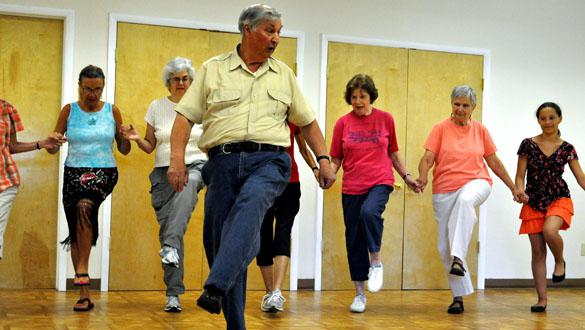
Additionally, peer leaders are seen as one of the most efficient ways to promote learning and progress in recent research. It usually results in an increase in efficiency for both the peer leader and the student. It also results in better retention and increased social skills for both parties.
Seniors often struggle with socializing as they grow older and even more with memory. This program offers opportunities for seniors to congregate with similar aged people who understand their issues. Studies have shown that the effect on psychological health for seniors who engage in class situations are very positive. Researchers Miya Narushima, Jian Liu and Naomi Diestelkamp found that “in order to sustain psychological wellbeing – an important reserve capacity – and avoid the negative consequences of vulnerabilities in old age, older people need to take some action to compensate for their decline, regardless of their degree of vulnerability.”
Director of the Office of Aging, Susan Koppenhaver, explained that the system in place uses classes where the methods and mediums of teaching have been attempted already by actual senior citizens. After they take the class some are able to become peer leaders so that members have someone who they identify with instructing them.
This methodology actually takes root in a mode of senior care practiced in California for decades and generally endorsed by their state Area Agencies on Aging. It’s notable for being effective and given the shrinking budgets for municipalities, efficient.
This instruction can take the form of peer leaders reading from a manual or talking to the other elders. A communal environment was described where a lot of give and take and brainstorming was often called for to solve problems. This was because, “people react differently to having diseases and coping with diseases,” explained Koppenhaver.
Informal methods like this can be more attractive to those in need. A study done by F..J. Leavitt, R.Peleg and A.Peleg on less medicinal focused approaches to treatment saw that patients felt more comfortable with this approach when other methods were less available.
Koppenhaver gave an example of how the knowledge shared with course takers translated to actual healthy lifestyles. A doctor might tell someone who’s never exercised to start walking. The course and the peers within it can take that situation and come up with a plan. For example a senior citizen might walk up and down their driveway a few times a day rather than going on mile long walks in the park.
It’s about “problem solving around X and [saying] here’s how to do Y,” Koppenhaver said.
This can extend to basic pain management and, at times, the class can break down things such as breathing, healthy eating and communication skills.
Seniors, especially those who live alone, are more susceptible to diseases and health problems. This class and its natural socialization can help prevent some of these issues which can range from higher chances of dementia to stroke or heart attack.
Dutchess County also possesses similar resources through its senior seminars within its office for the aging. There is a publicly identified need to support seniors with underlying health conditions as they continue life.
On Oct. 18 four participants registered. The Office of Aging anticipates at least eight and up to 12 participants based on past and similar class offerings. Koopenhaver said that the problem they hope to solve is simple, making living with illness more tolerable.
Transportation can be arranged for those who require it. Social-distancing guidelines will be enforced and mask wearing will be required.
Space is limited, to RSVP call the Office for the Aging at 845-340-3456.
